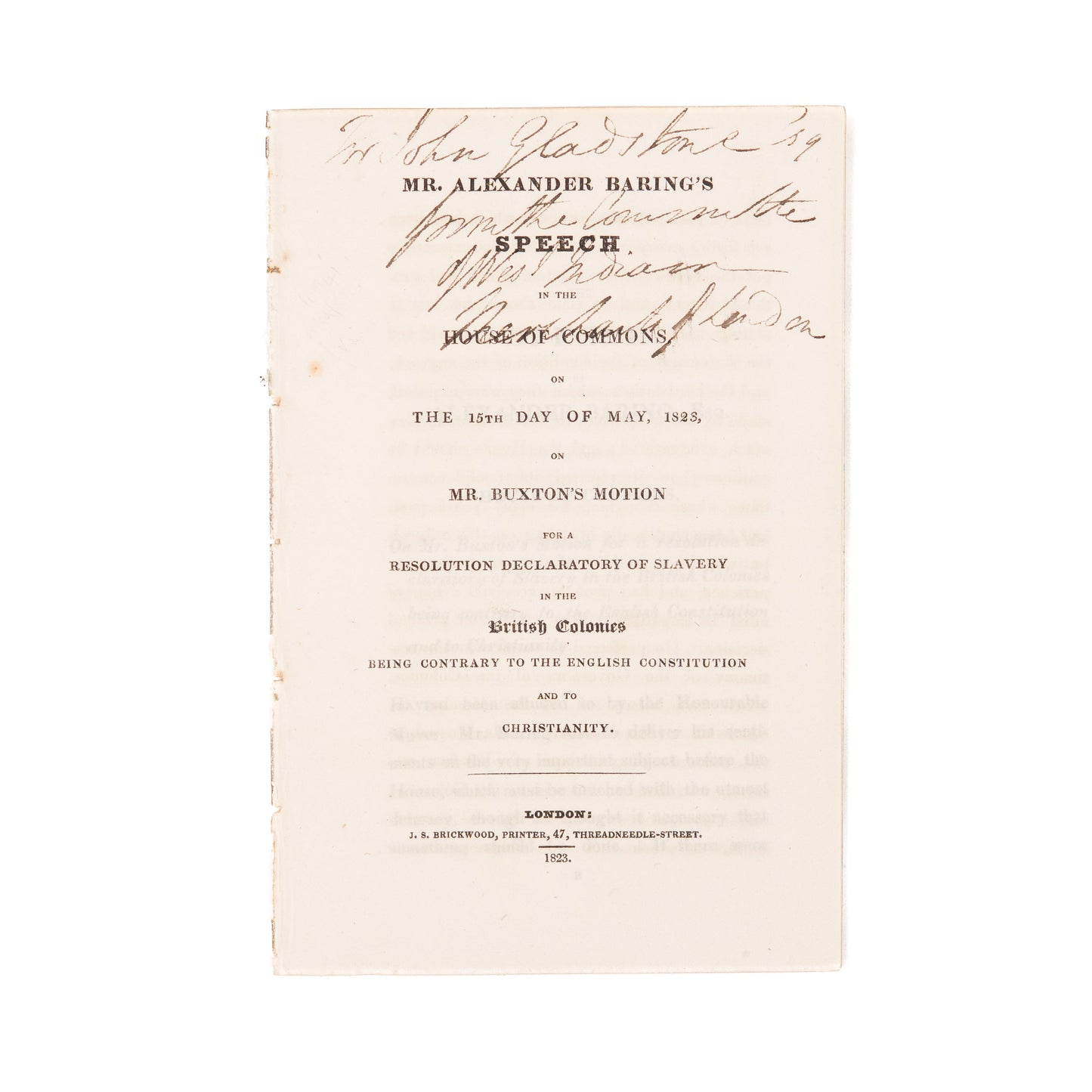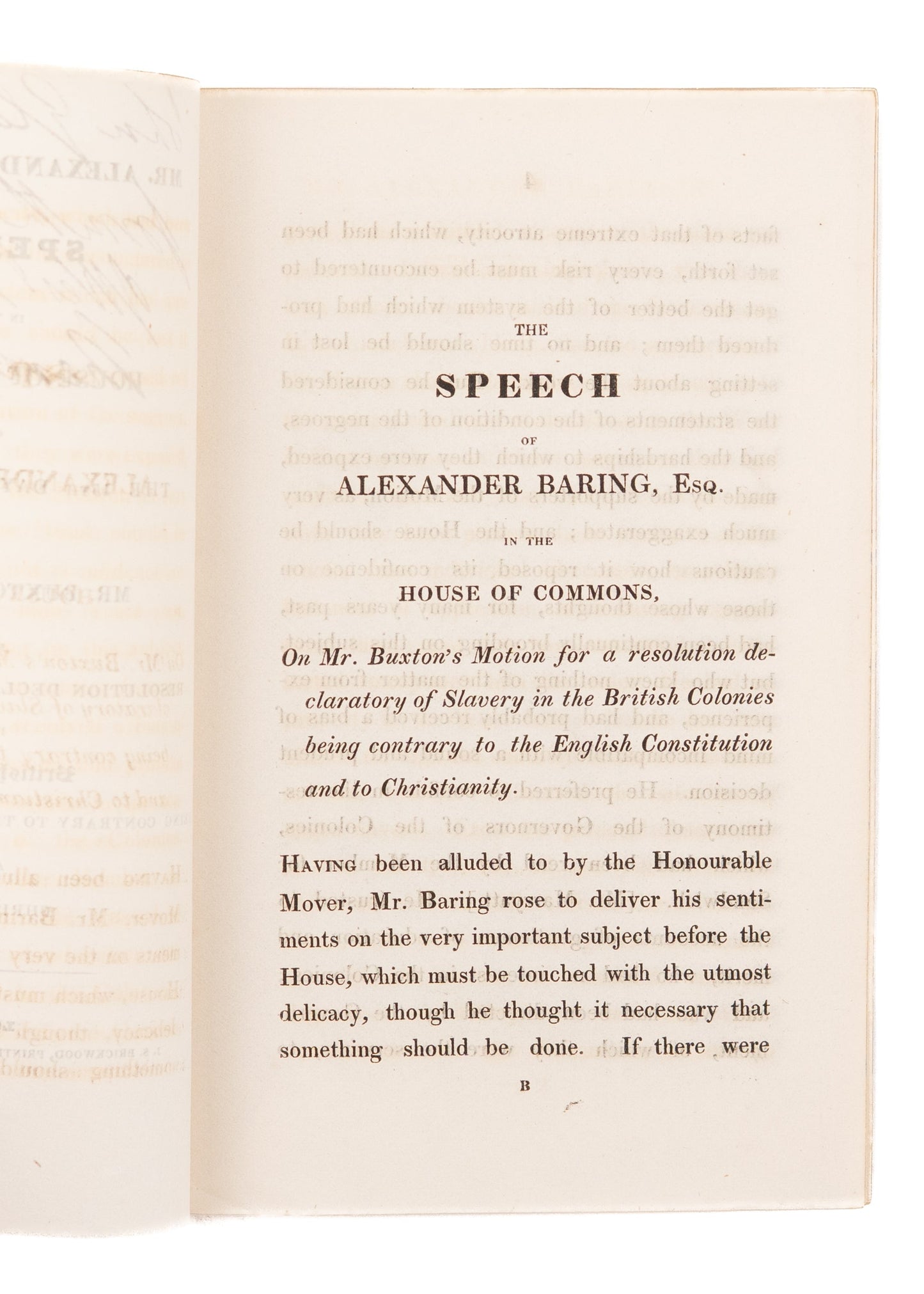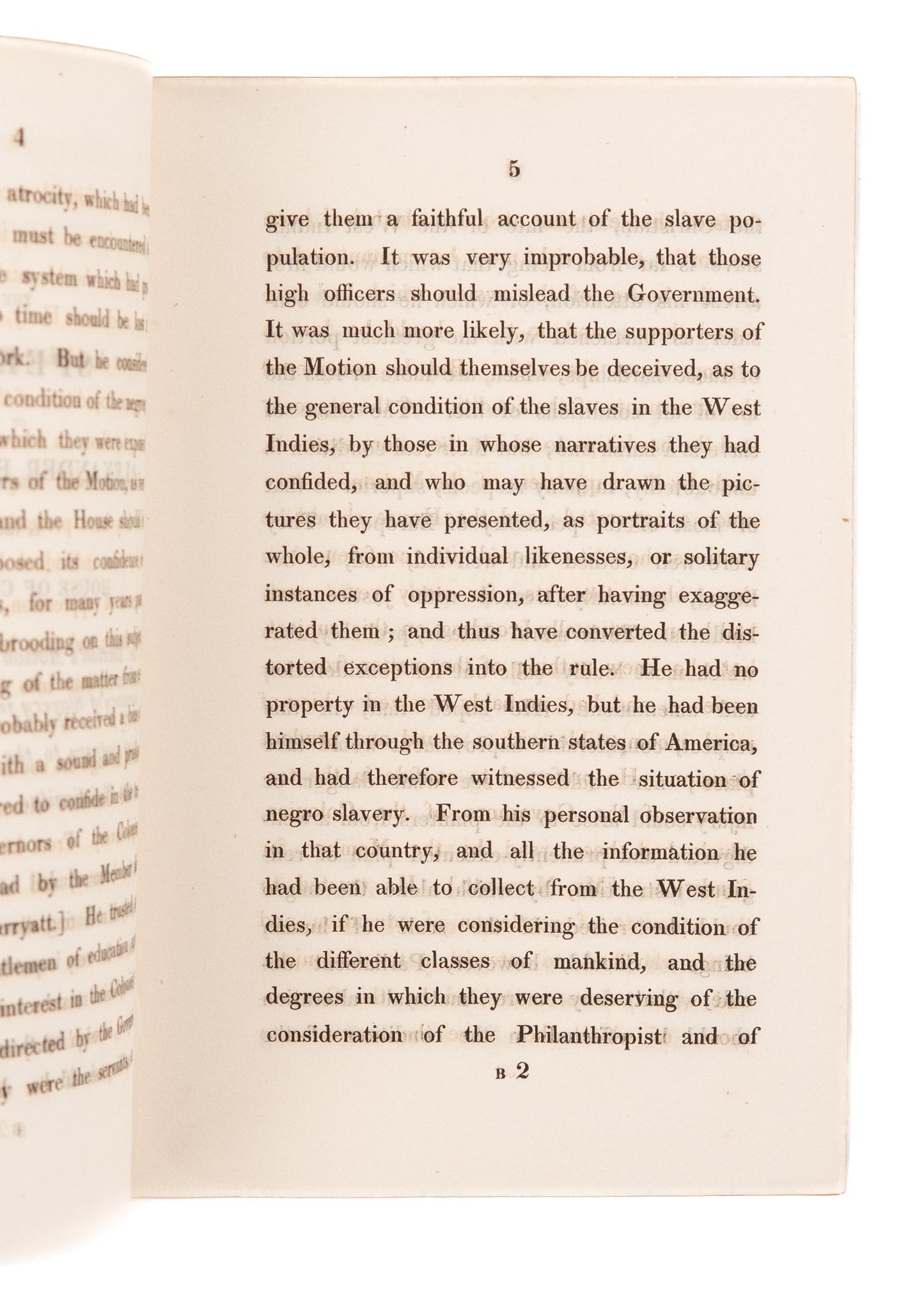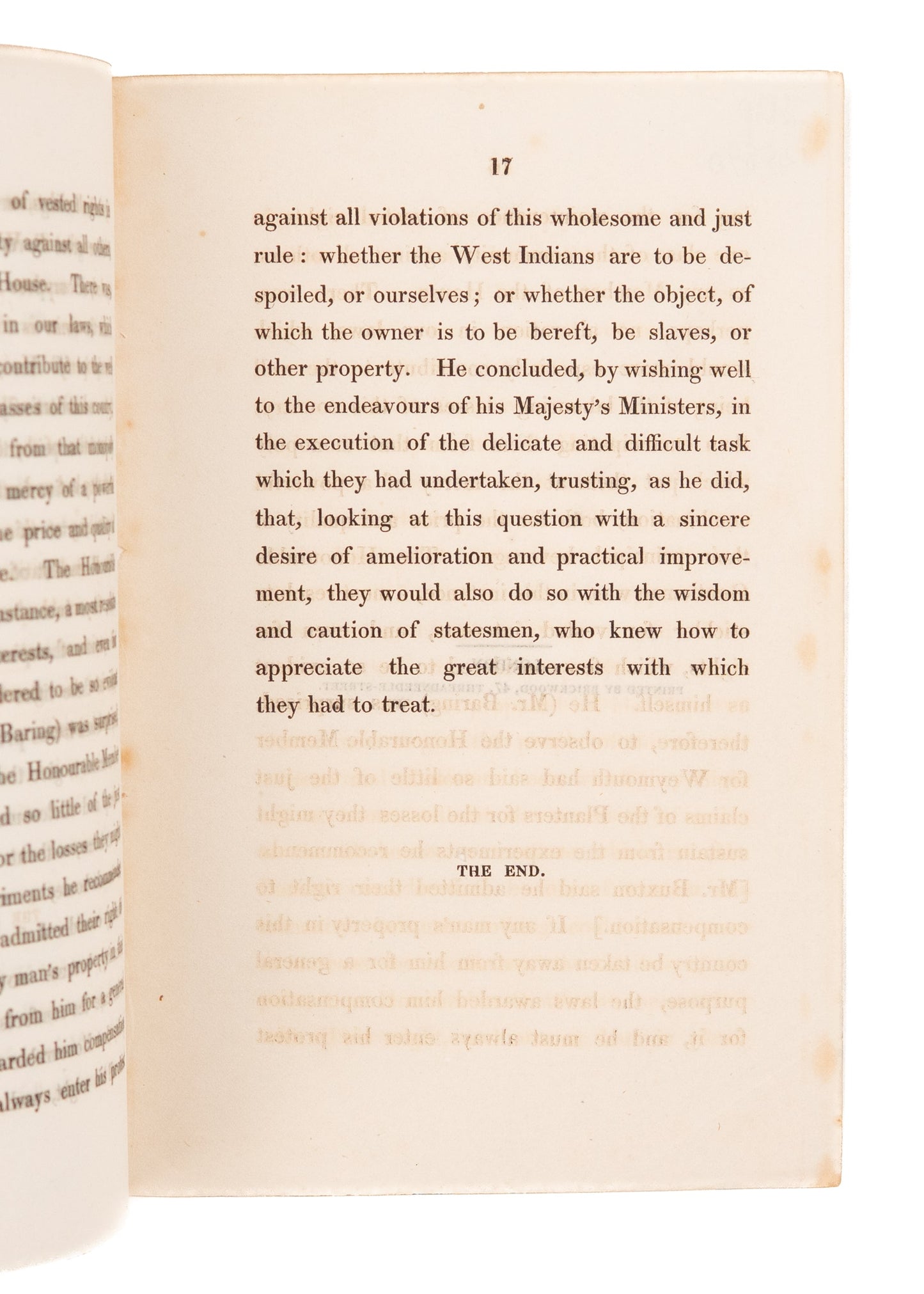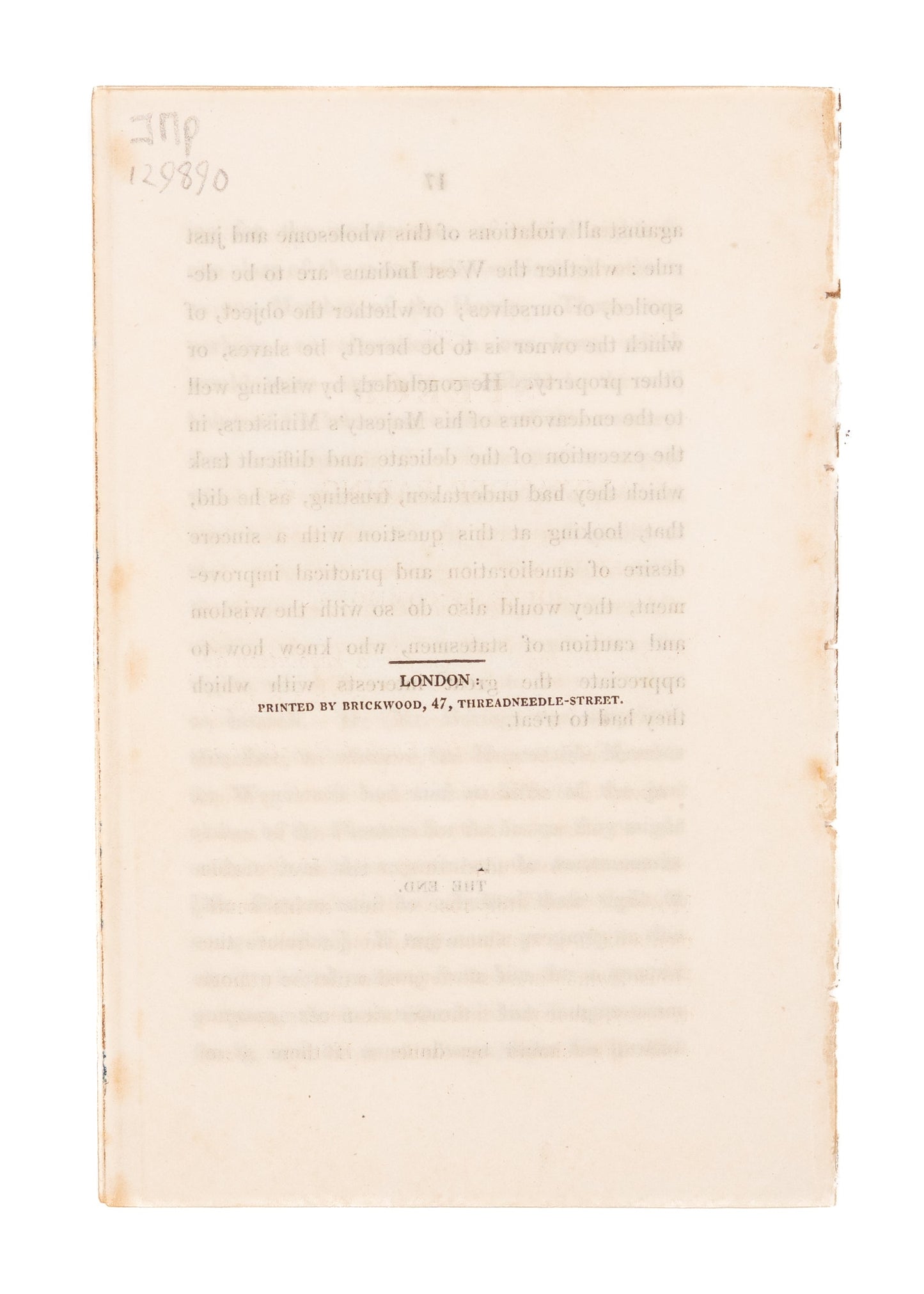Specs Fine Books
1823 THOMAS FOWELL BUXTON. Pro-Slavery - Anti-Abolition Document Owned by the Most Notorious Slave Owner in England.
1823 THOMAS FOWELL BUXTON. Pro-Slavery - Anti-Abolition Document Owned by the Most Notorious Slave Owner in England.
Couldn't load pickup availability
An exceptionally scarce rejoinder against Thomas Fowell Buxton's critical speech on the abolition of slavery in the House of Commons, given at the direct request of his dear friend, William Wilberforce.
In the months leading up to this, there had been efforts by the West Indian Merchants to avoid abolition at all if possible, or to at the very least make it of such pace and scale that it could be managed without destroying the West Indian and British economies [as they threatened it would]. In the end, as the post-1833 activities of the West Indian Merchants showed, it was all an effort to buy time to devise another system to put into place which would simply be slavery by another name.
In the speech, Buxton gives a brief history of the abolitionist cause, of England as not only a user of slaves, but of her history as a distributor of human flesh. That's just him easing into it though. He then begins to give detailed accounts of young boys, young girls, beaten and killed, ravaged by travel and labor and whip. It's a blistering, plodding, gruelling speech meant to grind away even the hardest of callousses to reveal the soft flesh of human affection below it.
The entire speech can be read here: ABOLITION OF SLAVERY.* (Hansard, 15 May 1823) (parliament.uk)
The point of the day was critical. Earlier in 1823, Buxton had helped found the British and Foreign Anti-Slavery Society. This day, May 15, he was putting a resolution before the House of Commons which would declare as public policy that slavery itself was both anti-constitutional, and thus illegal, and un-Christian, and therefore immoral. If the motion were to pass, it would demand that England begin, whether quickly or slowly, to take an intentional march toward complete abolition and emancipation. The legislation failed.
By 1825, Buxton had taken Wilberforce's seat as the primary driver of the abolitionist cause in Parliament. It was his wife and Amelia Opie who headed the petition drive that gathered 187,000 signatures to be presented to the House.
The present rejoinder was given by Alexander Baring. Baring was a British Member of the Parliament and expansive slave owner across three estates in Saint Kitts and one in British Guiana. When the slaves were forcibly emancipated in the 1830's, he was compensated what would today be millions of dollars by the British Crown. Additionally, most slave owners continued to utilize the same labor force under a new system that was supposed to lead to autonomy for the slaves. It didn't. Like many slave owners, Baring was compensated for the loss of his slaves, then he kept his slaves under a new arrangement. This arrangement did finally end, thus his resistance to abolition, but it wasn't a clean break.
He was also a member of The Committee of West Indian Merchants, who have presented this volume to John Gladstone.
The Committee of West Indian Merchants really existed for one reason; to perpetuate the non-abolition of slavery for as long as possible. Its membership was constituted of most of the largest slave owners and traders in England. Interestingly, its secretary, and perhaps the most significant pro-slavery apologist of the era, was Alexander McDonnell, the still-famed Irish chess champion.
John Gladstone [1764-1851] was perhaps the most notorious slave owner in all of England. When the slaves were finally forcible emancipated in the early 1830's, he received the single largest compensation of any slave owner in England, somewhere around $20 million in today's money.
He owned massive plantations in Jamaica, Demerara, and Guyana and the historic Demerara Slave Rebellion of 1823 was centered on his estate. He called in the British military and the slaves were brutally and mercilessly murdered. His son, William Ewart Gladstone, became Prime Minister of England and, with time and influenced by a circle of Evangelicals, a significant proponent of human rights; opposing the opium trade, the import of slave-manufactured products, a proponent of higher wages for laborers.
Baring, Alexander. Mr. Alexander Baring's Speech in the House of Commons on the 15th Day of May, 1823, on Mr. Buxton's Motion for a Resolution Declaratory of Slavery in the British Colonies being Contrary to the English Constitution and Christianity. London. J. S. Bricwood. 1823. 17pp.
Removed from a larger sammelband at some point, but complete as issued. An important abolitionist artifact with several points of interest.
Share
